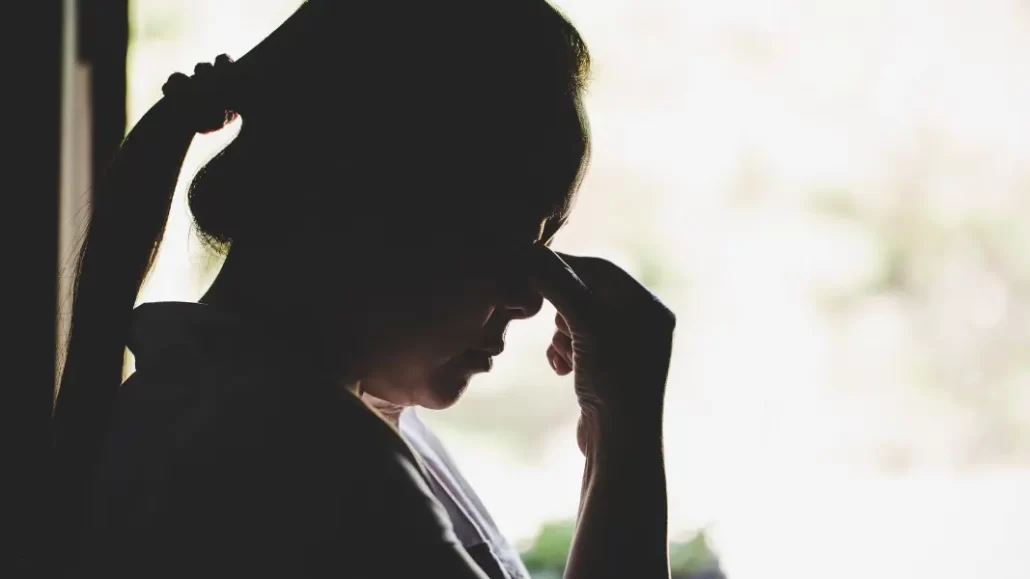Disenfranchised grief is something we have all experienced and will continue to experience in life. It is grief that is typically hidden and socially unacknowledged. We can grieve an expectation, a desire, or a dream. Disenfranchised grief is typically non-death related. When we grieve the physical death of someone who has passed away, we usually practice grief rituals. These may include attending funerals and funeral repasts. However, how do you grieve the loss of a job or a breakup with a friend or romantic partner?
We are conditioned to believe that disenfranchised grief is invalid or unimportant. Disenfranchised grief is real and impacts our nervous systems. It is critical that we honor grief of any kind and its impact. This blog will discuss ways to make space for disenfranchised grief and ways to manage the experience.
Examples and Common Symptoms
Disenfranchised grief can include grieving connected to a variety of different situations. These can include family estrangement, the childhood you wished you had, infertility, a decline in health, an incarcerated loved one, or a breakup with a friend or romantic partner.
Common disenfranchised grief symptoms include muscle tension, changes in sleep patterns, changes in appetite, and poor concentration. Common feelings include shock, disbelief, sadness, fear, anger, and loneliness. Anyone, including children, can experience disenfranchised grief. Additionally, a person can experience disenfranchised grief and death-related grief simultaneously. For example, grieving the physical death of a loved one and grieving a decline in your health. Contrary to popular belief, both forms of grief are valid.
Ways to Make Space for Disenfranchised Grief
Schedule time to sit with your emotions. You can schedule time each week or once a day to process your grief or simply acknowledge it. Validate your feelings and notice any physical sensations you experience. For example, does your chest feel heavy when you think about the grief? Can you take a deep breath and intentionally breathe into the heaviness and tense parts of your body? This is a grounding technique that can be quite helpful.
Integrating disenfranchised grief into your life is one way to honor grief. Accepting that occasionally you will think about this grief can be important. Keep in mind that the intensity of emotions typically decreases and becomes more manageable over time.
Avoid criticizing yourself whenever you think about the grief. Instead notice when the grief comes to mind and offer yourself compassion. Coping with disenfranchised grief can be challenging, and it is not linear. Criticizing yourself is not a productive use of your time. An affirmation that can be helpful is “I’m still grieving. I’m going to make a choice to be gentle with myself and drink some tea or listen to one of my favorite songs.”
Sometimes people have challenges accessing gentleness; here are some practices that can be helpful:
Nurture Yourself
Ask yourself, how would you nurture or provide care to a beloved pet, child, or other loved one? What would you say to a friend, a random child, or any of your child parts if they were experiencing emotional pain? Now try to extend that care and comfort inward. Acceptance is a process, and it can take time to embrace, so please be patient with yourself and the process.
Journaling
Journaling can be a wonderful way to create moments of self-reflection. Journal about the disenfranchised grief you are experiencing. Here are some introspective journal prompts:
- Has the grief taught you anything about yourself or your values? What have you learned or relearned? For example, has the grief enhanced self-trust and your capacity to ride tough “emotional waves”? Any new insights you can use for future grief experiences? Maybe you learned that you need to start your day with a daily meditation to feel grounded. Can you share any of these new insights with someone who is experiencing a similar form of disenfranchised grief?
- Has this disenfranchised grief impacted other areas of your life? Is it impacting your relationship with yourself? Have you noticed you are more critical of yourself or others? Is it negatively impacting your interpersonal relationships or your work performance? The first step is identifying its impact and then offering compassion to yourself and others.
- Are you grieving parts of yourself, which parts? How do you think you can mourn those parts or reconnect with those parts?
- If you put a microphone up to the disenfranchised grief what would it say?
- Notice where you feel the grief physically. Does the grief live anywhere in your body?
Write a “Release” Letter
Write a letter about the grief, tear it up, and bury the letter outside (if you have the outdoor space to do so).
Let Yourself Cry
Perhaps you can cry in the shower if you need to. The shower can be one place to express the grief and release the energy. Crying in the shower can be helpful for some people because it feels like there is a clear beginning, middle, and end. This structure can help to contain the grief. Additionally, water is cleansing, so this practice can feel very healing.
Be Creative
Perhaps you can create a piece of art that represents your loss. What colors or images come to mind when you think about the disenfranchised grief? Perhaps it can feel cathartic to paint something on a canvas that represents the grief. If you are a fan of painting, maybe you can create a grief collage. Select images or words from magazines or newspapers you have laying around to create a grief collage.
Get Moving
Another way to make space for disenfranchised grief is by stretching and moving your body. For example, dancing, doing yoga, or walking. Does your body need to move through the grief? What does your body need to do? Dancing through grief or listening to music can help manage the pain and emotional discomfort.
Obtain Support
Some people may invalidate the disenfranchised grief you’re experiencing. Use your discretion and intuition and talk to people who will validate your experience. Avoid expressing vulnerability to people who will invalidate your experience or tell you how you should feel.
Perhaps you can join an online support group for added support. You are not the only person experiencing disenfranchised grief, even if it feels that way. Read books or listen to podcasts that highlight the specific disenfranchised grief you are experiencing. The goal is to normalize your experience. There are many forms of therapy that can be helpful to process disenfranchised grief. For example, talk therapy (individual and group), creative arts therapy, or dance/ movement therapy.
Read more about ways to cope with grief here.
Disenfranchised Grief Deserves to Be Expressed
Grief can be extremely painful and unpleasant. Disenfranchised grief is particularly challenging because it is often unacknowledged by others and sometimes ourselves. Disenfranchised grief wants to be heard and expressed. There are many examples of disenfranchised grief and many emotions associated with the grief experience. It takes immense courage to slow down and create space for disenfranchised grief. Often, it feels easier to avoid acknowledging the disenfranchised grief. However, disenfranchised grief deserves to be seen and honored. There are a variety of healing practices that help people move through grief in transformative ways.
Are you interested in exploring disenfranchised grief with a mental health professional? Reach out to myTherapyNYC to find out which of our therapists would be a good fit for you!
What are some healing practices you have used to make space for disenfranchised grief and manage the experience? Join the conversation in the comments below!
LGBTQ and race-based trauma.
- Embracing Wellness Through Nature-Based Practices - February 29, 2024
- What is Disenfranchised Grief? - July 27, 2023
- How to Balance Wellness Goals With A Busy Schedule - February 16, 2023






2 comments
Amazing work Marilyn! I learned so much from this blog! Will def be sharing!
Thank you for this Marilyn. This is something that is so often hidden from others, but something I think we’ve all experienced in one way or another. I appreciate you shining a light on this topic!